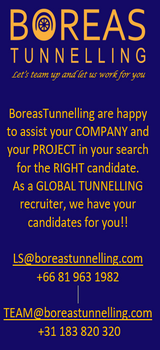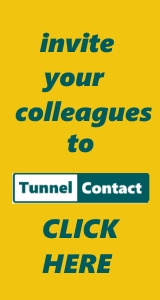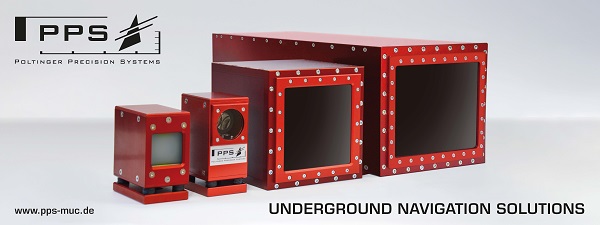- Pages
- Robin McAuley
- Tunnelcontact Tunnelpedia - Tunnelling & Underground Space Knowledgebase
- Tunnel Boring Machine
- How much does a Tunnel Boring Machine (TBM) cost?
How much does a Tunnel Boring Machine (TBM) cost?: Revision
This is a general guide for how much a Tunnel Boring Machine (TBM) would cost. It is not realistic to give exact figures in ever changing marketplace. For that reason, it is better to mention the factors effecting the TBM prices, as they generally remain constant. In addition, some recent amount figures are given as examples.
Remember that, when you want to buy a TBM, you don't have any showrooms of TBM Manufacturers to visit. Almost all the time,TBMs are manufactured after they are ordered and it takes time to build these machines in the range of from several months to several years, depending on the size and complexity.
The cost of a tunnel boring machine (TBM) basically depends on the following parameters:
- TBM Diameter
The boring diameter of a TBM is an important factor in determining its price. As a general rule; one can assume that, as the diameter increases, so does the price tag.
An often quoted rule for a Tunnel Boring Machine is; it costs US$1 million for per-meter in diameter. Thus, an 8 meter diameter TBM would cost around US$ 8 millions. But in reality, the increase in price will not be so linear and also there are exceptions.
For example; smaller-diameter TBMs often cost less than US$1m per meter. On the other hand, as you go from "subway size" to bigger diameters, the price differential for each meter increase in diameter will be more than US$1m.
Especially for the large diameter TBMs used for multi-level, multi-lane tunnels, increase per-meter will be much more than US$1m. This is because of the exponential increase in technological complexity with the large diameter TBMs. When you design and manufacture a 16-meter diameter TBM, it is not just a 16-meter version of a 5-meter TBM from the point of design and technologies used.
A recent example for the price of a large-diameter TBM is the one bought by the Santa Clara Valley Transportation Authority (VTA) in the USA for the BART Silicon Valley Phase II Project. For a 54 feet (~16,46 meter) diameter Herrenknecht TBM, VTA will be paying not US$16,46m, but the huge amount of US$76m. Although the deal may include some other services (training etc), it is clear that the common "US$1m per meter in diameter" rule does not really apply in large-diameter TBMs.
Economies of scale play a role in pricing
There are some exemptions to this "the bigger, the costlier" paradigm. It is just a matter of economics. Certain TBM diameters (e.g. so-called "subway size" of around 6 meters of diameter) are high in demand. Therefore they are produced by more numerous manufactures and in greater numbers. Hence in turn; their spare parts, (e.g. main bearings etc) of this size are often available off-the-shelf and at competitive pricing. For that reason, a "subway size" TBM may occasionally cost less than a smaller but custom-size TBM.
Increased competition
Prices of TBMs have come down rather radically in recent years, mainly because there is more competition, more TBM manufacturers and more TBM production nowadays. In the past, Tunnel Boring Machines were mostly produced in the USA, Japan, Germany, France and Canada. Nowadays the list includes Turkey, Korea and most importantly China.
The entry of Chinese manufacturers to the TBM manufacturing has been quite a disruption for the TBM market. In the very positive sense. Thanks to Chinese manufacturers, the prices of TBMs have come down rather radically in recent years. Before China's TBM manufacturers flooded the market with World-class TBMs, the cost was around US$ 1,5 million per meter in diameter. Nowadays with some Chinese TBMs for "subway size" this can be as low as US$750-500 thousands/meter.
- TBM Type
Tunnel Boring Machines are produced for various geological conditions and their complexity varies accordingly. As expected; the more complex a TBM is, the more expensive it will be.
For example the cost of a single shield mixed ground TBM that you use in uninhabited areas is usually the lowest. On the other hand, if you need to bore a tunnel under a sprawling city center, you'd better use an Earth Pressure Balance (EPB) TBM which will be more expensive. For certain geological conditions, there will be a need to use Slurry TBMs which generally tend to be even more expensive.
- TBM Manufacturer
Like everything else, there are buyers who are prepared to pay extra for a certain brand. This may be due to some perceived level of quality for a familiar TBM brand which has been around for decades. People are understandably timid in trying out a new brand even if it offers a better price/performance ratio. And this allows the established brands to charge extra for their products and service.
Of course, there will be many cases when a certain brand will be offering a better quality at a higher price. You pay what you get for.
- Project Prestige, Market Considerations
Sometimes manufacturers go to great lengths to supply a project with Tunnel Boring Machines by offering attractive price/performance packages. There might be several reasons for this.
For one, a tunneling project might be a prestigious project which is often a great marketing coup for the manufacturer. For a brand established in that market, it will be yet another showcase and for a less established brand a validation of brand opportunity.
In other cases, a manufacturer may give discount to defend their turf in the market. Or in other cases, it may be a priority for a brand to break into, to get a foothold, in a certain market. For example, a manufacturer which has never delivered a TBM in a west European country, may be willing to make an extra attractive offer to get their TBMs selected.
History
How much does a Tunnel Boring Machine (TBM) cost?
Revision created by Robin McAuleyHow much does a Tunnel Boring Machine (TBM) cost?
Revision created by Robin McAuleyHow much does a Tunnel Boring Machine (TBM) cost?
Revision created by Robin McAuleyHow much does a Tunnel Boring Machine (TBM) cost?
Revision created by Robin McAuleyHow much does a Tunnel Boring Machine (TBM) cost?
Revision created by Robin McAuleyHow much does a Tunnel Boring Machine (TBM) cost?
Revision created by Robin McAuleyHow much does a Tunnel Boring Machine (TBM) cost?
Revision created by Robin McAuleyHow much does a Tunnel Boring Machine (TBM) cost?
Revision created by Robin McAuleyHow much does a Tunnel Boring Machine (TBM) cost?
Revision created by Robin McAuleyHow much does a Tunnel Boring Machine (TBM) cost?
Revision created by Robin McAuleyHow much does a Tunnel Boring Machine (TBM) cost?
Revision created by Robin McAuleyHow much does a Tunnel Boring Machine (TBM) cost?
Revision created by Robin McAuleyHow much does a Tunnel Boring Machine (TBM) cost?
Revision created by Robin McAuleyHow much does a Tunnel Boring Machine (TBM) cost?
Revision created by Robin McAuleyHow much does a Tunnel Boring Machine (TBM) cost?
Revision created by Robin McAuleyHow much does a Tunnel Boring Machine (TBM) cost?
Revision created by Robin McAuleyHow much does a Tunnel Boring Machine (TBM) cost?
Revision created by Robin McAuleyHow much does a Tunnel Boring Machine (TBM) cost?
Revision created by Robin McAuleyHow much does a Tunnel Boring Machine (TBM) cost?
Revision created by Robin McAuleyHow much does a Tunnel Boring Machine (TBM) cost?
Revision created by Robin McAuley
cover tunnel photo by: Matt Brown from London, England / CC BY
Copyright 2019-2024 TunnelContact.com








